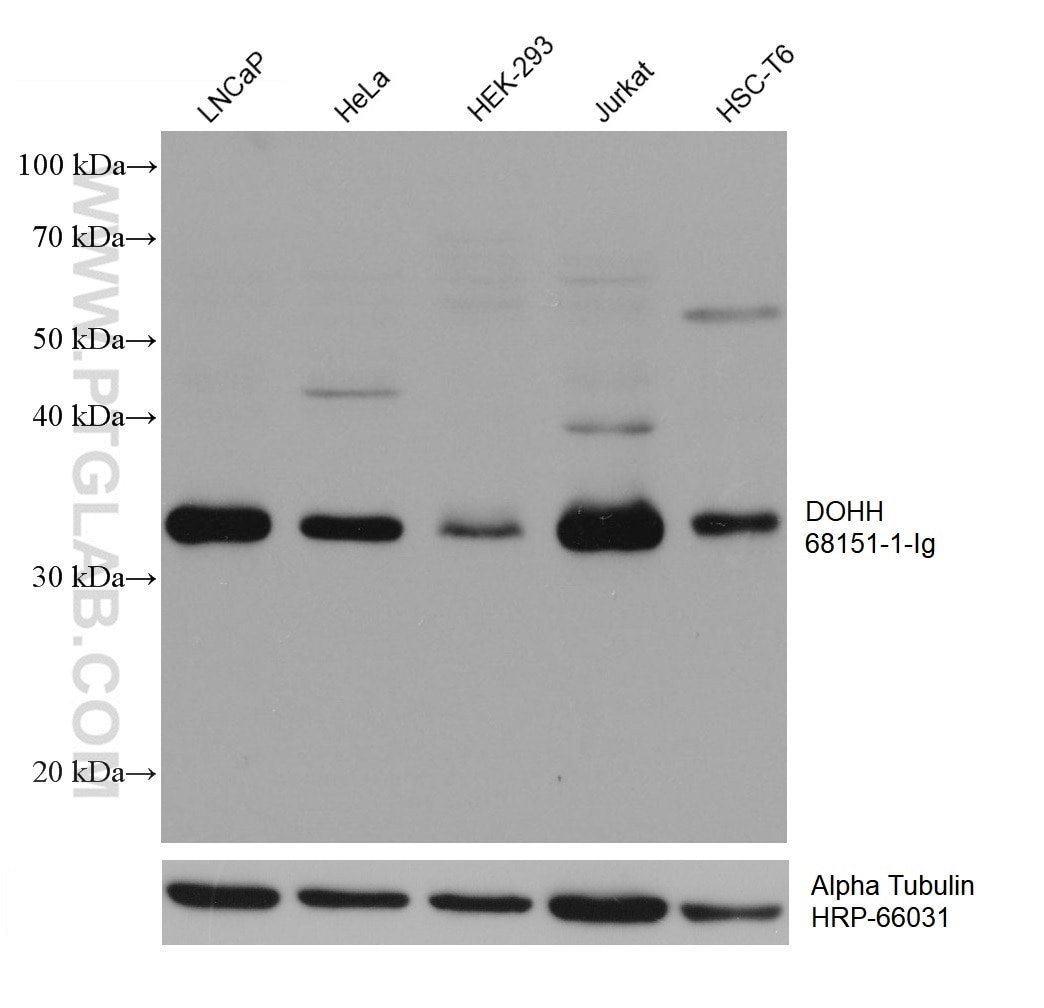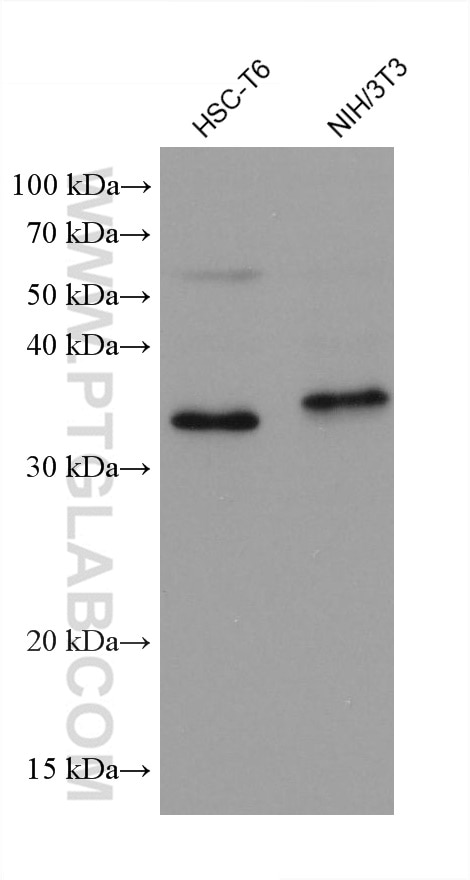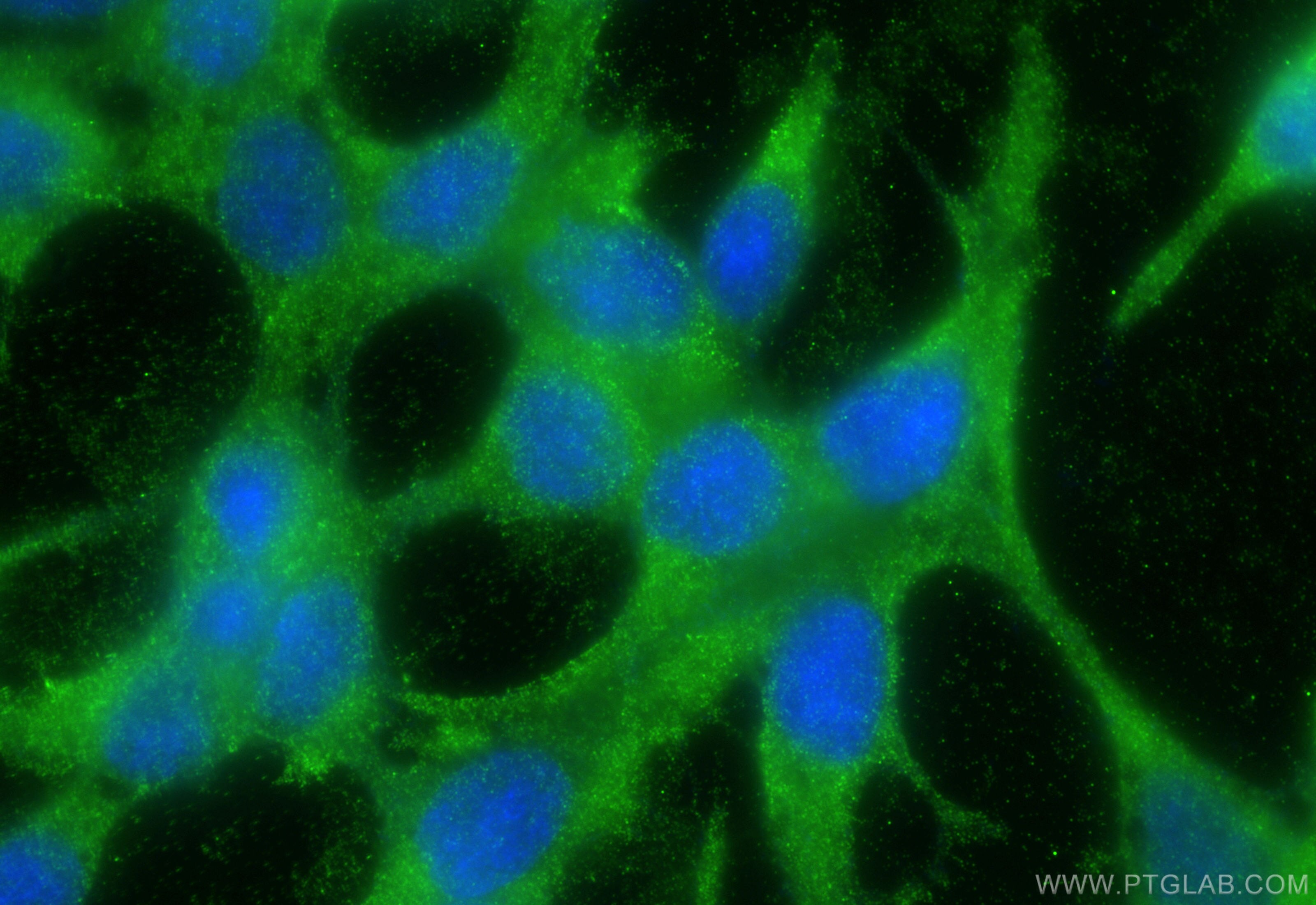Anticorps Monoclonal anti-DOHH
DOHH Monoclonal Antibody for WB, IF/ICC, Indirect ELISA
Hôte / Isotype
Mouse / IgG1
Réactivité testée
Humain, rat, souris
Applications
WB, IF/ICC, Indirect ELISA
Conjugaison
Non conjugué
CloneNo.
1H5H7
N° de cat : 68151-1-PBS
Synonymes
Galerie de données de validation
Informations sur le produit
68151-1-PBS cible DOHH dans les applications de WB, IF/ICC, Indirect ELISA et montre une réactivité avec des échantillons Humain, rat, souris
| Réactivité | Humain, rat, souris |
| Hôte / Isotype | Mouse / IgG1 |
| Clonalité | Monoclonal |
| Type | Anticorps |
| Immunogène | DOHH Protéine recombinante Ag13041 |
| Nom complet | deoxyhypusine hydroxylase/monooxygenase |
| Masse moléculaire calculée | 33 kDa |
| Poids moléculaire observé | 30-35 kDa |
| Numéro d’acquisition GenBank | BC002817 |
| Symbole du gène | DOHH |
| Identification du gène (NCBI) | 83475 |
| Conjugaison | Non conjugué |
| Forme | Liquide |
| Méthode de purification | Purification par protéine G |
| Tampon de stockage | PBS only |
| Conditions de stockage | Store at -80°C. 20ul contiennent 0,1% de BSA. |
Informations générales
Deoxyhypusine hydroxylase (DOHH) is the enzyme catalyzing the second step in the post-translational synthesis of hypusine [Nε-(4-amino-2-hydroxybutyl)lysine] in the eukaryotic initiation factor 5A (eIF5A). DOHH has been reported to mediate several crucial cellular functions, including cellular proliferation, differentiation and apoptosis. Moreover, previous studies have established that DOHH is highly involved in several essential biological processes driving human diseases including cancer growth, malarial drug resistance, and HIV-1 replication. In particular, the DOHH/eIF5A signaling pathway was revealed to mediate the ability of nerve growth factor to enhance neuronal growth and survival, highlighting the importance of DOHH in neuroprotection(PMID: 35007708, PMID: 16371467, PMID: 22908221, PMID: 19706422).







